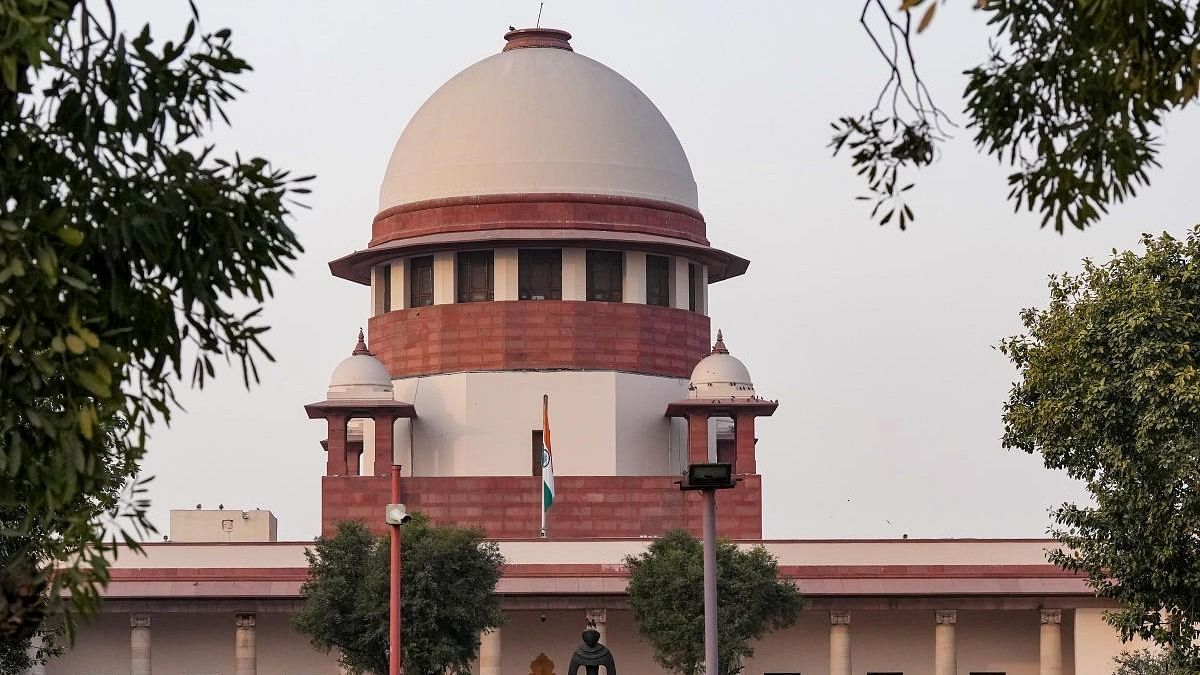
The Supreme Court of India.
Credit: PTI File Photo
New Delhi: The Supreme Court has stayed an order of the Calcutta High Court which required personal appearance of two persons before it in a case arising out of marital discord, saying it was 'at loss' to comprehend why liberty was not granted to them to appear through virtual mode.
The apex court noted the situation in the dispute before the high court prima facie was not such so as to call for personal presence of both the persons, one of whom is ailing, by taking an arduous journey from Mumbai despite his medical condition.
A vacation bench of Justices Dipankar Datta and Satish Chandra Sharma said if the high court thought it fit to interact and bring about a settlement between the parties, an attempt to achieve it by allowing the petitioners to attend proceedings through virtual mode ought to have been made.
"We are also at loss to comprehend as to why despite the advancement of science and technology and with the introduction of facilities for virtual hearing in the high courts, the court did not consider it desirable to grant liberty to the two petitioners to appear before it through the virtual mode," the top court said in its order passed on May 20.
The bench was hearing a plea against the May 14 order of the high court requiring personal appearance of both the persons.
The apex court observed it has failed to comprehend the necessity of the high court's direction insisting for personal presence of one of the petitioners' despite being apprised that he was suffering from severe medical conditions.
"From the materials placed on record we find that not only did the petitioner no.2 undergo an organ transplant in the recent past, he is afflicted by other ailments too calling for a surgery thus making it inadvisable for him to travel to Kolkata for attending court proceedings physically," it noted.
The bench said the other petitioner had physically appeared before the high court on April 8 in deference to its earlier order, yet, she too has been ordered to be produced in court by the police without apparent justification.
It said the high court order was bound to operate harshly against the petitioners.
"We expect the court to exercise restraint unless any party repeatedly acts in breach of its order to undermine its dignity, prestige and majesty, thereby attracting the contempt jurisdiction. Exercise of discretion judiciously could have prevented the proceedings from reaching this court," the bench said.
"For the reasons aforesaid, we have no hesitation in staying operation of the order requiring the personal appearance of both the petitioners on May 22, 2024," it said, while granting them liberty to appear before the high court through virtual mode.
It said an order passed in the matter by the high court on January 31 had noted the court's desire to interact with the parties to the proceedings before it and with that in view, the parties were required to be present before it on April 8.
The apex court noted that on April 8, one of the petitioners was present before the high court physically while the other petitioner could not remain present due to medical issues which were duly brought to the attention of the high court.
It said the April 8 order of the high court recorded that the court 'insists the presence of the petitioner no.2 on the next date of hearing', on May 14.